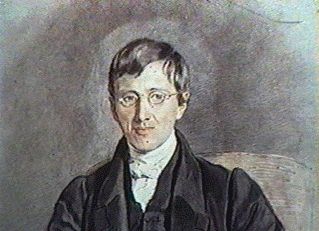O God, who didst grant the priest blessed John Henry to follow
thy
kindly light and to find peace in thy Church: graciously grant that by
his
intercession and example, we may be drawn from shadows and shades into
the
fullness of thy truth: through thy Son Jesus Christ our Lord, who liveth
and reigneth with thee in the unity of the Holy Ghost, God, world
without end. Amen.

One remark may be made in conclusion. It may be objected that the
tenor of the above explanations is anti-Protestant, whereas it is
notorious that the Articles were drawn up by Protestants, and intended
for the establishment of Protestantism; accordingly, that it is an
evasion of their meaning to give them any other than a Protestant
drift, possible as it may be to do so grammatically, or in each
separate part.
But the answer is simple:—
1. In the first place, it is a duty which we owe both to the
Catholic Church and to our own, to take our reformed confessions in
the most Catholic sense they will admit; we have no duties towards
their framers. Nor do we receive the Articles from their original
framers, but from several successive Convocations after their time; in
the last instance, from that of 1662.
2. In giving the Articles a Catholic interpretation, we bring them
into harmony with the Book of Common Prayer, an object of the most
serious moment for those who have given their assent to both
formularies.
3. Whatever be the authority of the Declaration prefixed to the
Articles, so far as it has any weight at all, it sanctions the mode of
interpreting them above given. For its enjoining the "literal and
grammatical sense," relieves us from the necessity of making the
known opinions of their framers, a comment upon their text; and its
forbidding any person to "affix any new sense to any
Article," was promulgated at a time when the leading men of our
Church were especially noted for those Catholic views which have been
here advocated.
4. It may be remarked, moreover, that such an interpretation is in
accordance with the well-known general leaning {345} of Melanchthon,
from whose writings our Articles are principally drawn, and whose
Catholic tendencies gained for him that same reproach of popery, which
has ever been so freely bestowed upon members of our own reformed
Church.
"Melanchthon was of opinion," says
Mosheim, "that for the sake of peace and concord many things
might be given up and tolerated, in the Church of Rome, which Luther
considered could by no means be endured ... In the class of matters
indifferent, this great man and his associates placed many things
which had appeared of the highest importance to Luther, and could not
of consequence be considered as indifferent by his true disciples. For
he regarded as such, the doctrine of justification by faith alone; the
necessity of good works to eternal salvation; the number of the
sacraments; the jurisdiction claimed by the Pope and the Bishops;
extreme unction; the observation of certain religious festivals, and
several superstitious rites and ceremonies."—Cent. XVI.
§ 3. part 2. 27, 28.
5. Further: the Articles are evidently framed on the principle of
leaving open large questions, on which the controversy hinges. They
state broadly extreme truths, and are silent about their adjustment.
For instance, they say that all necessary faith must be proved from
Scripture, but do not say who is to prove it. They say that the
Church has authority in controversies, they do not say what
authority. They say that it may enforce nothing beyond Scripture, but
do not say where the remedy lies when it does. They say that
works before grace and justification are worthless and
worse, and that works after grace and justification are
acceptable, but they do not speak at all of works with GOD'S
grace, before justification. They say that men are lawfully
called and sent to minister and preach who are chosen and called by
men who have public authority given them in the congregation to
call and send; but they do not add by whom the authority is to
be given. They say that Councils called by princes may err;
they do not determine whether Councils called in the name of CHRIST
will err. {346}
6. The variety of doctrinal views contained in the Homilies, as
above shown, views which cannot be brought under Protestantism itself,
in its greatest comprehension of opinions, is an additional proof,
considering the connexion of the Articles with the Homilies, that the
Articles are not framed on the principle of excluding those who prefer
the theology of the early ages to that of the Reformation; or rather
let it be considered whether, considering both Homilies and Articles
appeal to the Fathers and Catholic Antiquity, in interpreting them by
these witnesses, we are not going to the very authority to which they
profess to submit.
7. Lastly, their framers constructed them in such a way as best to
comprehend those who did not go so far in Protestantism as themselves.
Anglo-Catholics then are but the successors and representatives of
those moderate reformers; and their case has been directly anticipated
in the wording of the Articles. It follows that they are not
perverting, they are using them for an express purpose for which among
others their authors framed them. The interpretation Anglo-Catholics
take was intended to be admissible; though not that which those
authors took themselves. Had it not been provided for, possibly the
Articles never would have been accepted by our Church at all. If,
then, their framers have gained their side of the compact in effecting
the reception of the Articles, let Catholics have theirs too in
retaining their own Catholic interpretation of them.

No comments:
Post a Comment